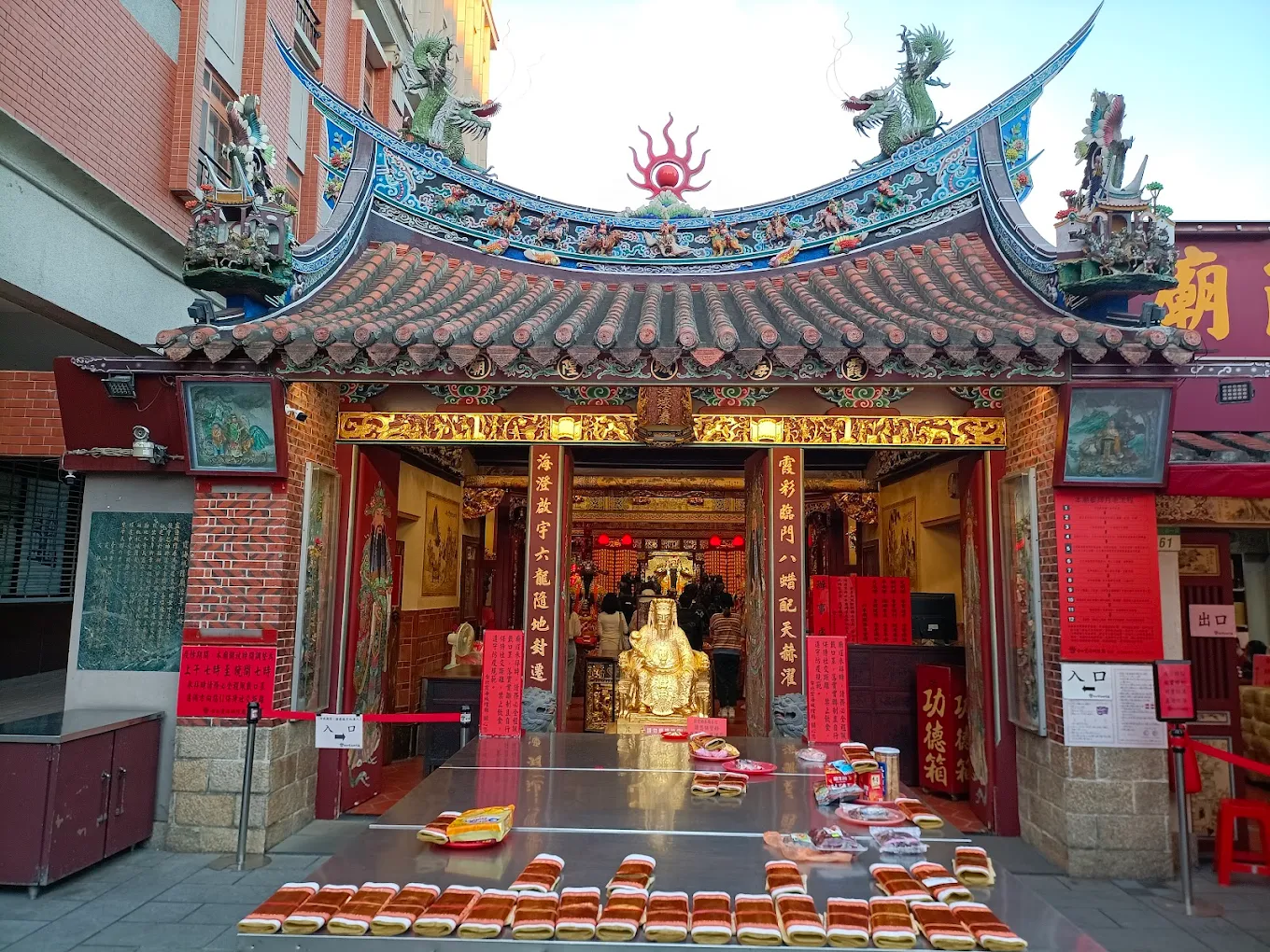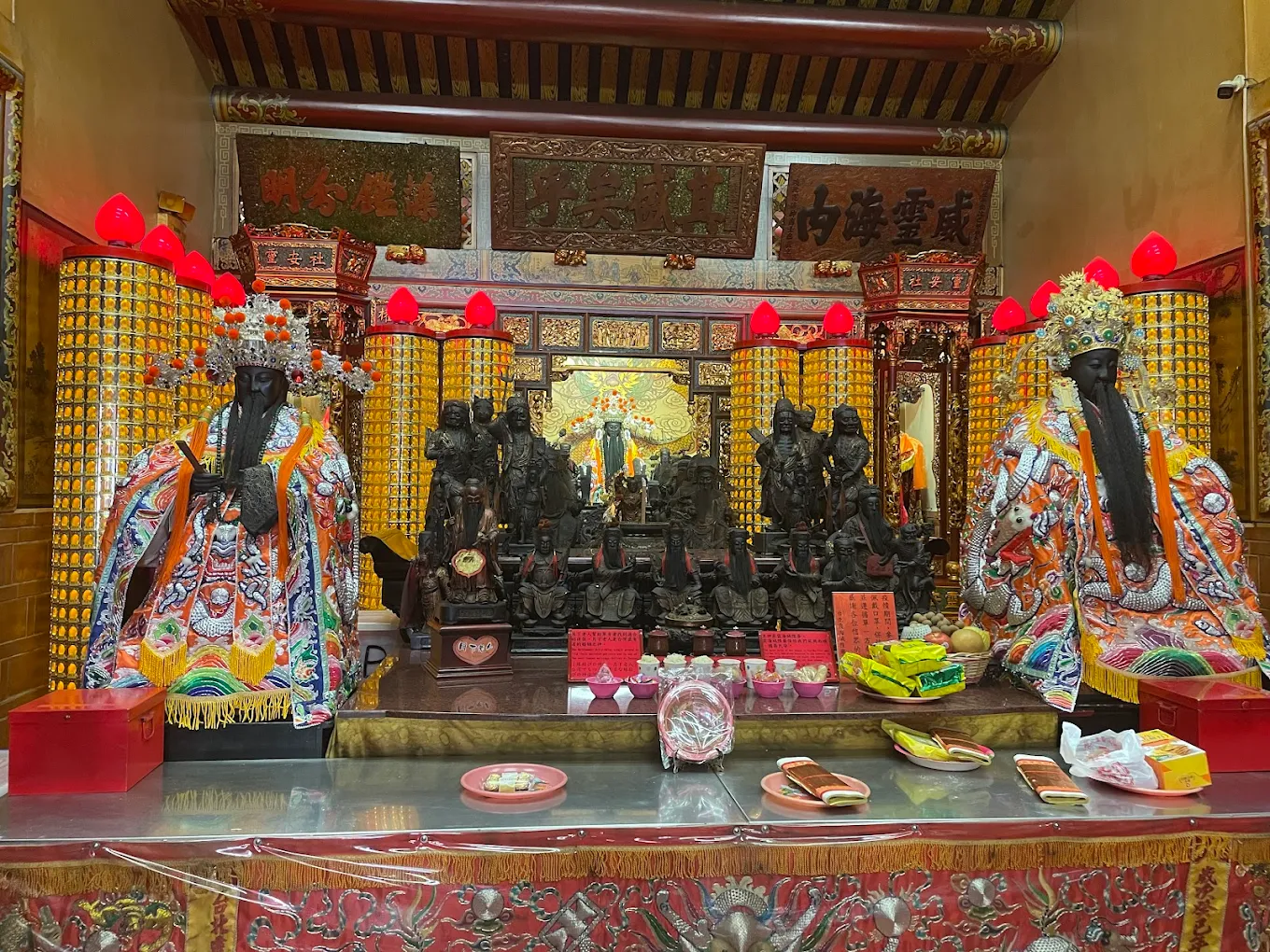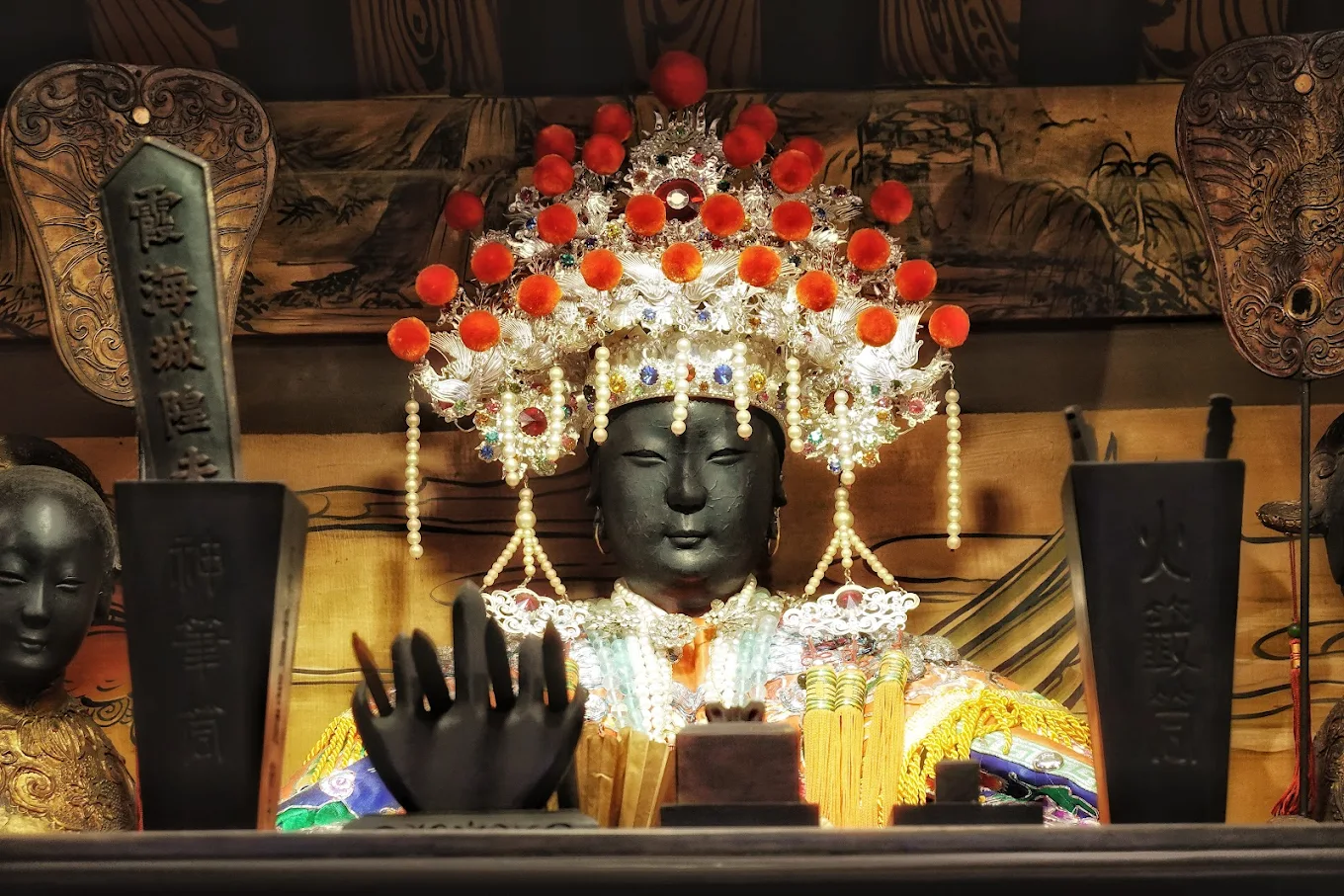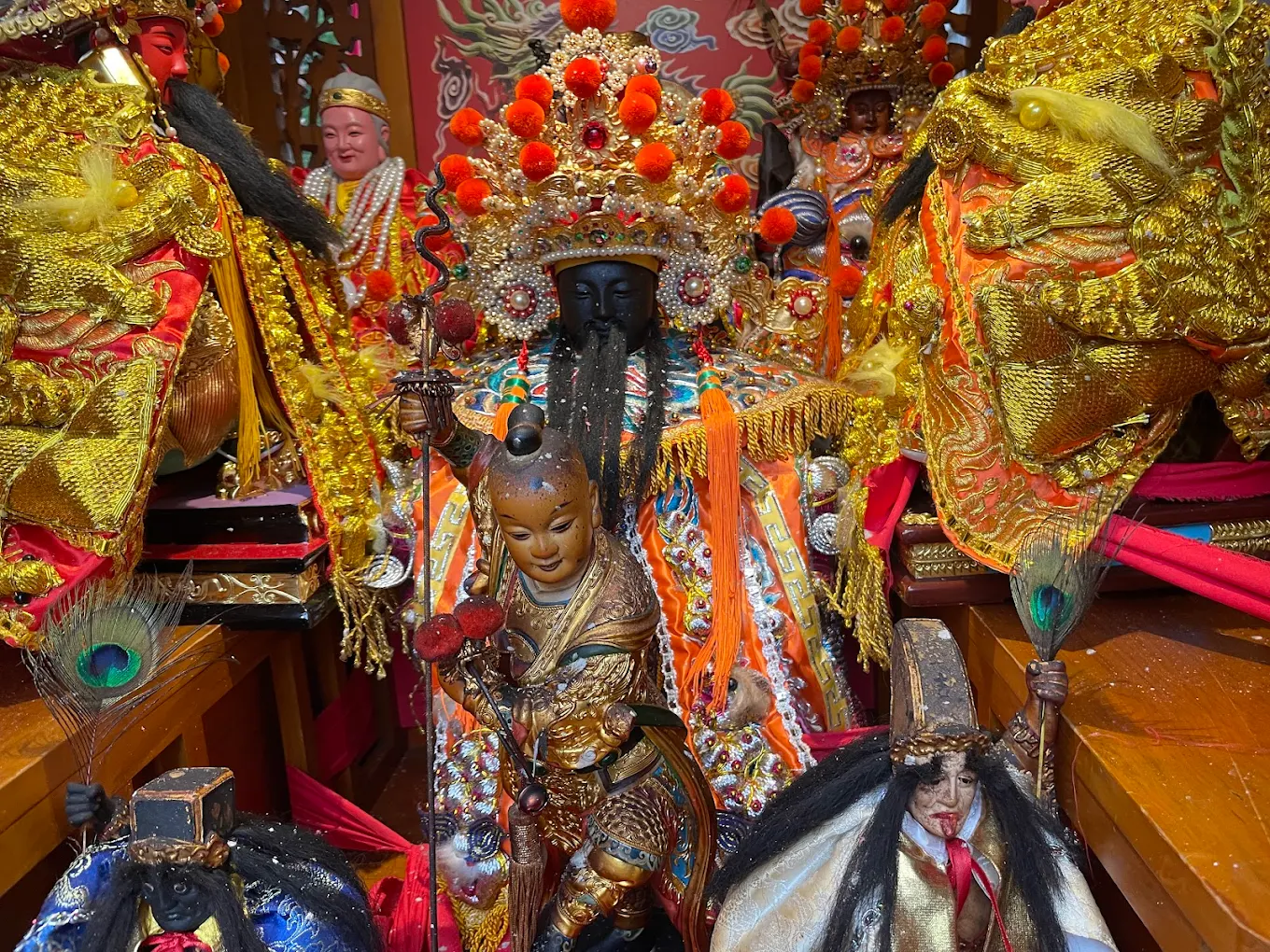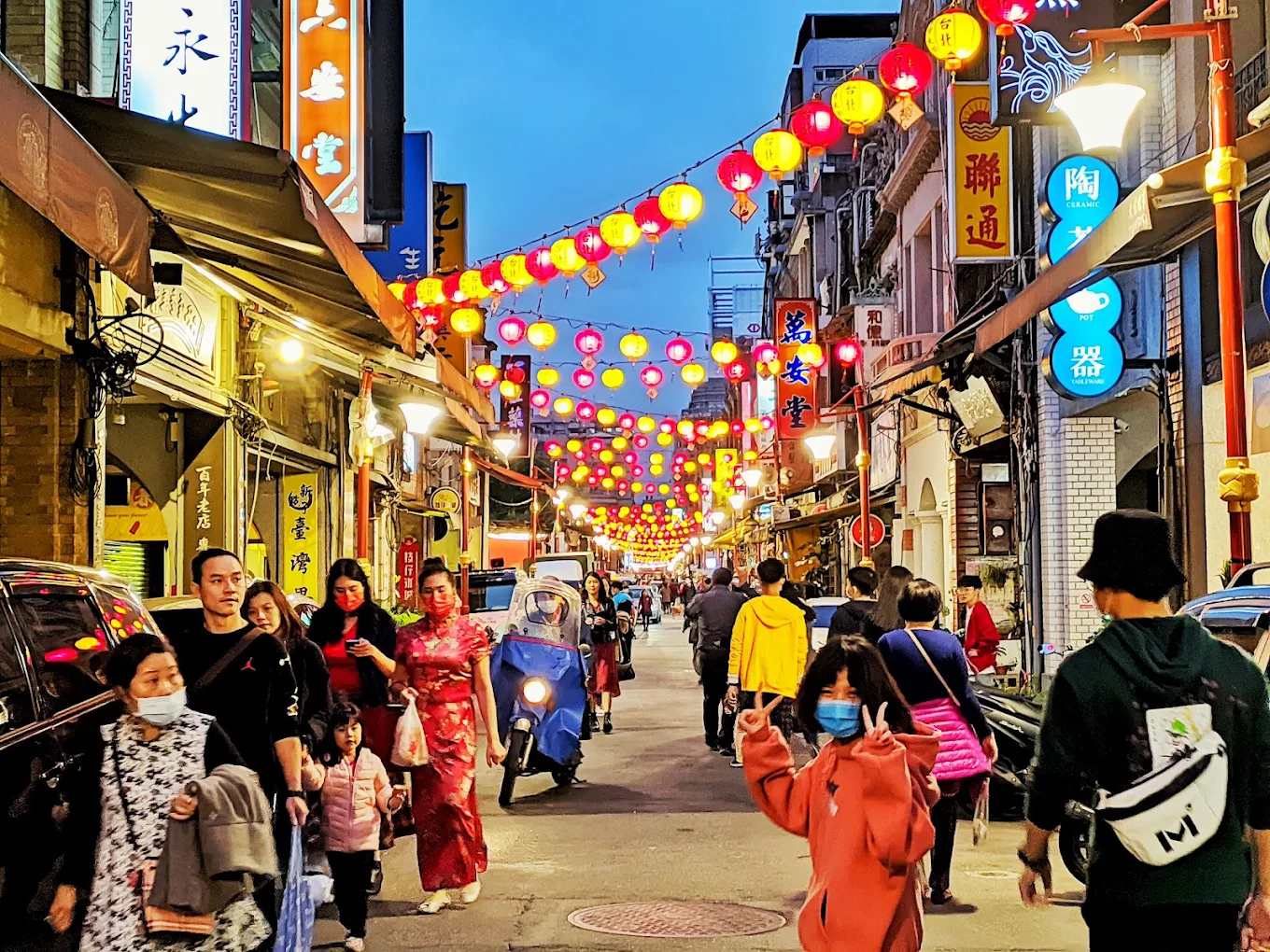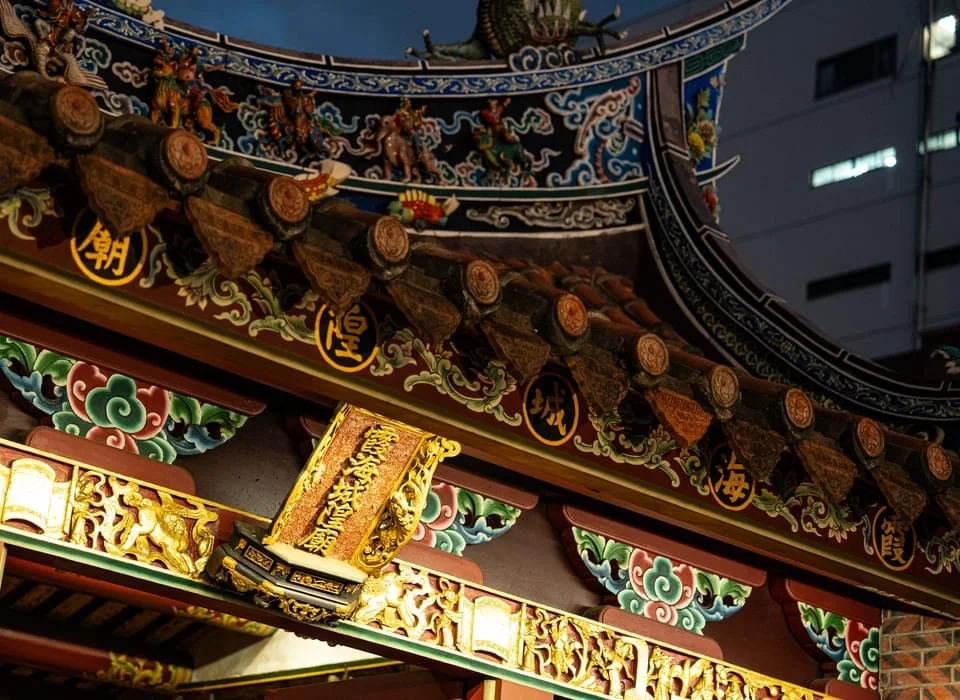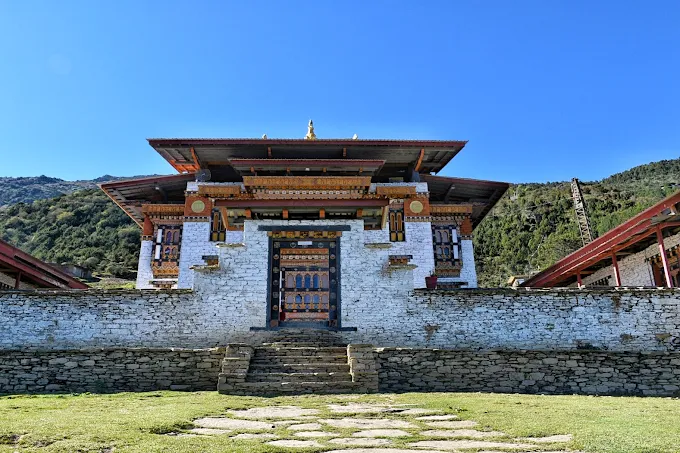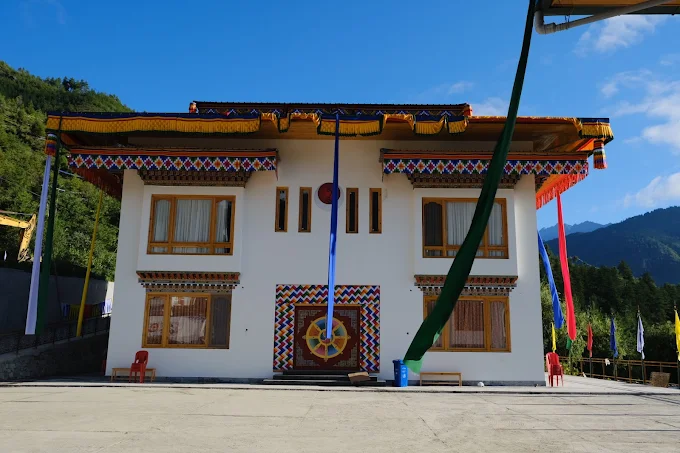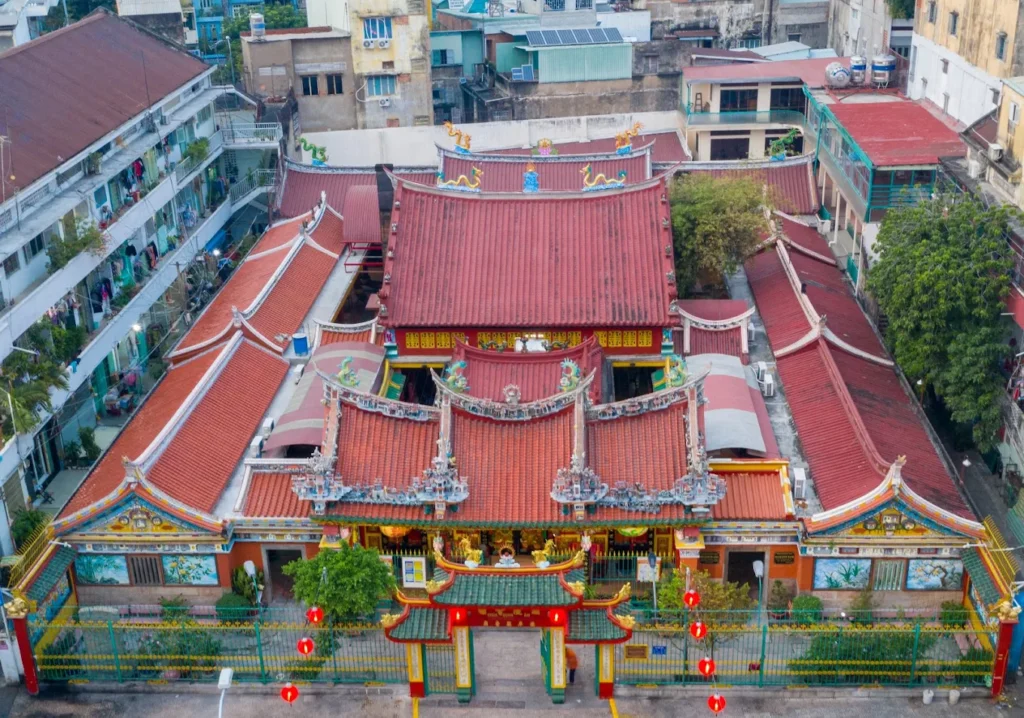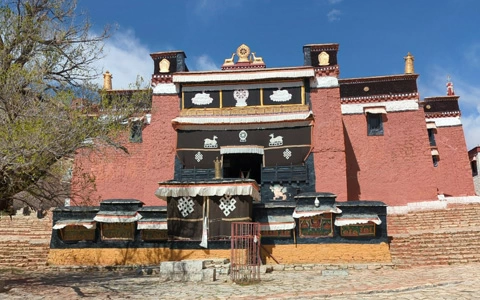Xiahai City God Temple: The Fujianese Guardian of Taipei’s Romantic and Civic Soul
Red lanterns sway under incense haze, casting a warm glow over Xiahai City God Temple in Taipei’s Datong District. Established in 1856 by Fujianese settlers, this compact shrine honors Chenghuang [Chénghuáng], the City God, a divine overseer of Taipei’s civic order, ensuring justice and prosperity. Chenghuang, rooted in Chinese cosmology, judges souls and protects cities, his stern visage carved in camphor wood, anchoring the temple’s ornate interior. Equally revered is Yue Lao [Yuè Lǎo], the matchmaking deity, whose red thread rituals draw couples seeking love, a tradition unique from Baoan’s medicinal rites. Yue Lao, a Taoist figure, binds destined lovers with invisible threads, his statue adorned with crimson cords. A Taipei historical site, Xiahai City God Temple’s intricate wooden carvings and vibrant City God Procession invite travelers to feel the pulse of Fujianese devotion amid Dihua Street’s bustle.
Overview and Significance
Introduction to Xiahai City God Temple
Nestled in Datong District, Xiahai City God Temple embodies Taiwanese Folk Religion, blending Buddhist compassion, Taoist harmony, and folk reverence for civic and romantic ideals. Founded in 1856, its red lanterns and wooden carvings offer a compact yet ornate retreat, distinct from Taipei Confucius Temple’s scholarly focus. Taiwanese Folk Religion fosters unity, guiding Datong through rituals and festivals. This shrine draws cultural travelers to its matchmaking legacy and civic devotion. Visiting Xiahai City God Temple unveils Taipei’s vibrant heritage.
Historical Journey
In 1856, Fujianese settlers from Tongan, led by merchant Wang Fu, built this temple to honor Chenghuang, seeking divine protection for their new home, as documented in Datong records. The 1895 Japanese occupation saw the shrine serve as a community hub, resisting cultural suppression. Renovations in 1926, led by artisan Li Chen, preserved its Fujianese artistry, with further restorations in 1971 earning historical status. Xiahai City God Temple history reflects Datong’s resilience through colonial shifts.
Cultural Significance
The City God Procession, held on the 14th day of the fifth lunar month, fills Dihua Street with colorful parades, as elder Ms. Lin recalls her grandfather’s palanquin-carrying role in the 1950s. Charity drives, like food distributions, embody Chenghuang’s justice, while Yue Lao’s rituals draw global couples. Xiahai City God Temple history shapes Datong’s civic identity.
Unique Legacy
Unlike Baoan’s medicinal focus, the temple’s Yue Lao red thread rituals symbolize romantic destiny, their crimson cords a Fujianese tradition. Its syncretic worship mirrors Taiwan’s pluralistic faith, blending Chenghuang’s civic duty with Yue Lao’s romantic blessings.
Community and Global Impact
The annual procession unites Datong residents, while international devotees, especially from Japan, join Yue Lao rites. Cultural workshops on Fujianese music preserve Taipei’s heritage, fostering pride.
Historical Anecdotes
In 1945, as oral histories recount, Chenghuang’s statue reportedly glowed, signaling Japan’s surrender, a miracle that rallied Datong’s hope, cementing the temple’s protective lore.
Social Role
The shrine strengthens Datong’s bonds through festivals and charity, with lantern-making workshops drawing families, their laughter echoing under red lanterns.
Artistic Influence
Intricate wooden carvings inspire Taipei’s artisans, their floral motifs distinct from Taipei Confucius Temple’s austere designs, shaping local temple art. Visiting Xiahai City God Temple reveals this artistic legacy.
- Datong’s Xiahai City God Temple thrives with devotion.
- Xiahai City God Temple history reveals Fujianese resilience.
- Explore Xiahai City God Temple Yue Lao rituals for romance.
From Fujianese settlers’ 1856 prayers, travelers step into the temple’s ornate courtyard, where civic and romantic legacies intertwine.
Architectural and Spiritual Features
Iconic Design
The compact siheyuan courtyard, framed by red-tiled roofs, glows under Taipei’s sun, its wooden carvings casting intricate shadows. Red lanterns sway, reflecting Fujianese artistry, distinct from Baoan’s sprawling layout. Visiting Xiahai City God Temple unveils this ornate design.
Worshipped Statues/Deities
Chenghuang’s camphor wood statue, stern yet protective, anchors the main hall, its musky scent mingling with incense. As Taipei’s divine judge, he oversees civic order, his presence guiding Datong’s moral fabric. Yue Lao’s statue, adorned with crimson threads, binds lovers, his gentle smile inspiring hope. This matchmaking deity, rooted in Taoist lore, draws couples to tie red cords, a ritual unique to this shrine. Xiahai City God Temple architecture centers on these sacred icons.
Signature Elements
Yue Lao’s red thread altar, draped in crimson cords, symbolizes romantic destiny, a hallmark of the temple’s Fujianese heritage, unlike Baoan’s medicinal focus.
Materials and Techniques
Fujianese artisan Li Chen’s 1926 woodwork, with floral carvings, showcases Qing precision, preserved in 1971 restorations, as temple records confirm.
Lesser-Known Features
Phoenix murals in side halls, their golden hues symbolizing harmony, offer meditative calm, contrasting the courtyard’s vibrancy.
Preservation Efforts
Datong merchants funded 1971 renovations, restoring carvings with communal labor, ensuring the Fujianese legacy endures, a testament to devotion.
Environmental Integration
Feng shui aligns the courtyard with Dihua Street’s bustle, its banyan tree’s shade fostering reflection amid Taipei’s energy.
- Visit Datong’s Xiahai City God Temple for its ornate courtyard.
- Admire Xiahai City God Temple architecture in Taipei.
- See Xiahai City God Temple Yue Lao rituals for artistry.
From the courtyard’s red-lit glow, travelers join the shrine’s vibrant rituals, where Datong’s devotion pulses.
Rituals and Practices
Daily Sacred Rites
Devotees offer incense, its haze rising, and pray before Chenghuang’s altar, seeking civic blessings, their whispers echoing in the main hall. Yue Lao’s red thread rites draw couples tying cords for love.
Festival Traditions
The City God Procession on the 14th day of the fifth lunar month fills Dihua Street with palanquins and drums, as Ms. Lin recalls her family’s 1960s participation. Xiahai City God Temple rituals shine in this parade.
Visitor Engagement
Travelers can join Yue Lao’s red thread rituals, guided by volunteers, tying cords to pray for love, immersing in Datong’s romantic faith. Visiting Xiahai City God Temple offers this ritual immersion.
Spiritual Community Roles
Lay practitioners (jūshì) lead chants blending Buddhist and Taoist hymns, while monks maintain altars, roles rooted in Taiwanese Folk Religion’s spirit.
Interfaith Connections
Chenghuang and Yue Lao’s worship blends Buddhist ethics and Taoist mysticism, reflecting Taiwan’s pluralistic faith, unique to Xiahai City God Temple rituals.
- Experience Datong’s Xiahai City God Temple rituals firsthand.
- Join Xiahai City God Temple rituals during the City God Procession.
- Visiting Xiahai City God Temple offers cultural immersion.
From chant-filled halls, travelers explore tips to engage with Datong’s sacred legacy.
Visitor Information
Navigating to Xiahai City God Temple
Dihua Street’s historic alleys lead to the shrine’s red gates, a short walk from Taipei Main Station, with market aromas drifting nearby, a vibrant landmark in Datong.
Address of Xiahai City God Temple
No. 61, Dihua Street, Section 1, Datong District, Taipei City, Taiwan.
Visiting Hours and Etiquette
Open 6 AM–8 PM, visitors should wear modest clothing and avoid photography during prayers, respecting Taiwanese Folk Religion customs, as signage advises.
Transport Options
Take the MRT to Taipei Main Station, a 10-minute walk, or buses along Dihua Street, weaving through Datong’s bustling markets, offering scenic access to the temple.
Cultural Immersion Opportunities
Join Yue Lao red thread workshops, tying crimson cords with locals like Mr. Chang, whose 1980s ritual led to his marriage, a hands-on link to Datong’s romantic heritage. Visiting Xiahai City God Temple offers this immersion.
Photography Tips
Capture red lanterns at dusk, low angles highlighting their glow, while respecting worshippers’ privacy, avoiding flashes in the main hall.
- Visit Datong’s Xiahai City God Temple via Taipei MRT.
- Explore Xiahai City God Temple for romantic workshops.
- Navigate to Xiahai City God Temple in Taipei.
From tying red threads in Datong’s vibrant alleys, travelers explore the shrine’s philosophical depth.
Cultural and Spiritual Insights
Religious Philosophy
Taiwanese Folk Religion at this sanctuary blends Buddhist compassion with Taoist harmony, fostering civic and romantic unity. Chenghuang’s civic oversight ensures justice, while Yue Lao’s matchmaking binds souls, guiding Datong’s ethics. This syncretism, rooted in Fujianese values, shapes Taipei’s cultural identity through rituals like the City God Procession. Visiting Xiahai City God Temple unveils this philosophy.
Cultural Narratives
Legends of Chenghuang judging corrupt officials inspire Datong’s devotion, as elder Mr. Wu recounts a 1920s tale of divine justice. Yue Lao’s red threads, tied by couples like the Chens in 1990, cement romantic lore.
Modern Cultural Connections
City God Procession posts on Instagram, tagged #XiahaiCityGod, draw younger devotees, linking Datong’s heritage to Taipei’s digital culture. Xiahai City God Temple connects to this vibrant scene.
- Discover Datong’s Xiahai City God Temple philosophy.
- Explore Xiahai City God Temple narratives.
- Visiting Xiahai City God Temple connects to modern culture.
From Datong’s philosophical depths, travelers heed the call to explore the temple’s vibrant legacy.
Why You Have to Visit
Red lanterns glow under incense haze in Datong’s ornate courtyard, a Fujianese beacon of civic and romantic devotion. Chenghuang’s protective legacy and Yue Lao’s red thread rituals, woven through vibrant processions and wooden carvings, invite travelers to join Datong’s faith. Visiting Xiahai City God Temple unveils Taipei’s soul, where Fujianese heritage endures in timeless grace.
- Datong’s Xiahai City God Temple is a must-see.
- Experience Xiahai City God Temple Yue Lao rituals.
- Visiting Xiahai City God Temple reveals Taipei’s heritage.
